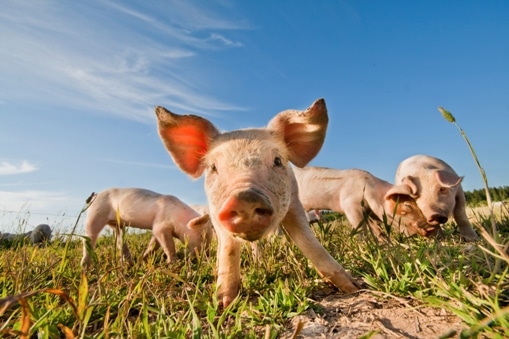Funny German Words Vs Other Language

18 Weird German Words You Won't Believe Exist
Many German words have no close translation in English.
One of the greatest things about learning languages is to discover words which exist in one language but don't have any equivalent in your own—or any other for that matter.
Here we we'll check out 18 weird German words you've probably never heard of!
Contents
- 1. Ohrwurm (Ear worm)
- 2. Fernweh (Distance pain)
- 3. Kummerspeck (Grief bacon)
- 4. Innerer Schweinehund (Inner pig dog)
- 5. Fremdschämen (Exterior shame)
- 6. Torschlusspanik (Closing-gate panic)
- 7. Treppenwitz (Staircase joke)
- 8. Lebensmüde (Life tired)
- 9. Weltschmerz (World pain)
- 10. Weichei (Soft egg)
- 11. Backpfeifengesicht (Slap face)
- 12. Erklärungsnot (Explanation poverty)
- 13. Sitzfleisch (Sit or seat meat)
- 14. Purzelbaum (Tumble tree)
- 15. Dreikäsehoch (Three cheeses high)
- 16. Zungenbrecher (Tongue breaker)
- 17. Schattenparker (Shadow parker)
- 18. Kuddelmuddel (???)
Download: This blog post is available as a convenient and portable PDF that you can take anywhere. Click here to get a copy. (Download)
1. Ohrwurm (Ear worm)
Have you ever listened to a song on the radio while driving to work only to find yourself still humming the same tune by lunch time? Congratulations, you've had an ear worm. The beautiful German wordOhrwurm describes the fact of having a song stuck in your head as if it wriggled itself into your brain through your ear.
2. Fernweh (Distance pain)
This gem describes the feeling of wanting to be somewhere else. It's kind of like a reverse homesickness (Heimweh in German), a longing for a place that isn't where you are right now.Fernweh is also a frequent reason for people in Germany to go on holiday.

3. Kummerspeck (Grief bacon)
When a relationship ends or during other times of sadness, anger, or worry, it's common to put on a few pounds ofKummerspeck. What it means is the excess weight put on by emotional overeating. So when you find yourself on the couch watching "Bridget Jones' Diary" with a tub of ice cream, you are in fact feeding your grief bacon.

4. Innerer Schweinehund (Inner pig dog)
Can't get up in the morning to be on time for work? Too lazy to go to the gym? Homework remains undone until the last minute? Don't worry, it's not your fault. The blame lies with yourinner pig dog. That's the tiny voice in the back of your head which is trying to convince you to live a life of inertia and which you will have to overcome to rid yourself ofKummerspeck.
5. Fremdschämen (Exterior shame)
For those of you who cringe in phantom pain when others make a fool of themselves, this is your word. It describes the feeling of shame when seeing someone else in an uncomfortable or embarrassing situation. It's a real thing for the more empathetic folk and has kept more than one person from watching "the Office."
6. Torschlusspanik (Closing-gate panic)
As people get older, some find themselves worrying about roads not taken or milestones they meant to achieve by a certain age but haven't.Torschlusspanik is the feeling of urgency to accomplish them before some imaginary gate closes and "it's all too late." It's mostly used for those who sense their biological clock is running out and feel the need to settle with a partner or have children immediately.
7. Treppenwitz (Staircase joke)
Have you ever noticed how when you have a chance encounter with an attractive person of the opposite sex or get into an argument with someone, the best jokes, lines, and comebacks always occur to you afterwards? That's the so-calledTreppenwitz. It's the joke that comes to your mind on the way down the stairs after talking to your neighbor in the hallway two floors up. 
8. Lebensmüde (Life tired)
This word literally means being tired of life and was used to describe the dramatic and soul-crushing emotional agony of young Romantic poets (see alsoWeltschmerz andWeichei). Nowadayslebensmüde is what you call your friends when they are attempting something especially stupid and possibly life threatening. Most people in fail videos on YouTube suffer from latentLebensmüdigkeit.
9. Weltschmerz (World pain)
The world isn't perfect. More often than not it fails to live up to what we wish it was.Weltschmerz describes the pain we feel at this discrepancy. It can be one of the main drivers forKummerspeck.
10. Weichei (Soft egg)
No,Weichei isn't what you order in the hotel when you want a three-minute egg for breakfast. In fact the waiter might look at you slightly disconcerted for accusing him of being a wuss. A soft egg, in German, means someone who is weak and cowardly. The same is also conveyed by calling someoneWürstchen,the diminutive of sausage. Apparently Germans like to name wimps after foodstuffs.
11. Backpfeifengesicht (Slap face)
Have you ever heard the joke "Some people just need a high five – in the face – with a chair?" Backpfeifengesicht kind of goes in the same direction. It describes someone who you feel needs a slap in the face. Disclaimer: we're telling you this for informational purposes only and do not in any way condone violence.

12. Erklärungsnot (Explanation poverty)
Erklärungsnot is a state shared by cheating spouses, lying politicians, and school children without their homework alike. It's what you find yourself in when put on the spot without a sufficient explanation or excuse for something you have done or failed to do. Most often used in the form ofin Erklärungsnot geraten orin Erklärungsnot sein.
13. Sitzfleisch (Sit or seat meat)
As much as it sounds like it,Sitzfleischisn't a recipe of GermanHausfrauen that involves tenderizing meat by placing it under your buttocks. Instead, it describes a character trait. Those who possess a lot of seat meat are able to sit through and weather something incredibly hard or boring. It's like carrying your own personal cushion around with you.

14. Purzelbaum (Tumble tree)
This tree is so common in Germany that every child knows it. However, if you are about to take out your big German botanical dictionary, let me stop you right there. Fespite the name, aPurzelbaum isn't part of the kingdom of plants. Instead, it describes a somersault on the ground, a favorite way of children to get their clothes dirty.
15. Dreikäsehoch (Three cheeses high)
This sounds like it would make a great name for a pizza. However, what it describes is a person who is vertically challenged, implying they're only as tall as three wheels of cheese placed on top of each other. Usually this label is reserved for small children, together withZwerg orPimpf.

16. Zungenbrecher (Tongue breaker)
While it sounds like a medieval torture instrument, the nature of theZungenbrecher is much less gruesome. It is the German equivalent of tongue twister, a phrase that's very hard to pronounce even for native speakers due to its sequence of letters. A very common one in German isBlaukraut bleibt Blaukraut und Brautkleid bleibt Brautkleid. Yeah, practice that for a while and say it 10 times fast.
17. Schattenparker (Shadow parker)
This word is part of a series of insults for men which accuse them of unmanly behavior. In this case, of parking their car in the shadow to avoid heating up the interior. These kinds of derogatory terms were something of a meme some years back and whole lists of them exist on the internet. Alternatives includeWarmduscher (someone who showers with warm water),Sitzpinkler (a man who urinates while sitting down), orTurnbeutelvergesser (someone who used to forget their gym bag in cardio class).

18. Kuddelmuddel (???)
I know, great final word right? Don't even start guessing its English meaning.Kuddelmuddel describes an unstructured mess, chaos, or hodgepodge. Alternatives which are equally awesome includeTohuwabohu,Wirrwarr,Mischmasch, andKladderadatsch.
I know, some of these just sound too far-fetched to be true. Well, they are far-fetched—gathered in the distant land of Germany. If you're still convinced I'm making up words, go ahead and look them up in the dictionary!
But If you're struggling to understand a word, watching or listening to them in use can make the meaning much clearer. Immersing yourself in German content can really help you to learn the context of each word.
For example, with a program like FluentU you can watch authentic German videos or create personalized flashcards to study new words and phrases with.
Other ways to easily immerse yourself can be through watching TV shows or movies in German. Having a storyline to follow can make a word much easier to understand.
Keep practicing and soon you'll sound just like a native would!
Download: This blog post is available as a convenient and portable PDF that you can take anywhere. Click here to get a copy. (Download)
Source: https://www.fluentu.com/blog/german/weird-german-words-vocabulary/
0 Response to "Funny German Words Vs Other Language"
Post a Comment